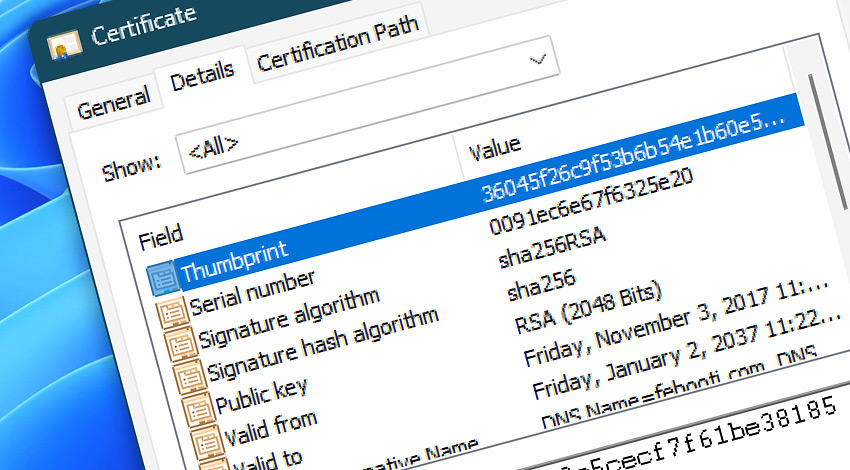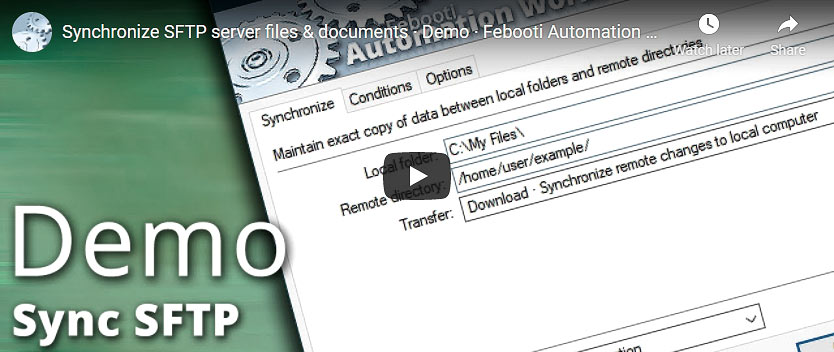
To securely connect to FTP, FTPS, or WebDAV servers, Automation Workshop verifies the server certificate. If the server certificate is not signed with a CA (Central Authority) certificate, the user can choose to trust any server certificate (which is relatively safe in secured LANs) or to manually enter the fingerprint of the server certificate.
Overview
It is possible to specify multiple comma, semicolon, or pipe-separated fingerprints. To seamlessly transition from an old server to a new server, the user can specify the fingerprints of both the old and new servers. Multiple fingerprints are useful for systems with load balancing when a connection is made to different servers.
Get fingerprint
The easiest and safest way to retrieve a certificate fingerprint is to open the certificate file on a server and see the thumbprint value in the Details tab. When connecting with a browser to check the certificate fingerprint, ensure that a trusted connection is used to prevent the possibility of a man-in-the-middle attack · Get SFTP or SCP fingerprints securely
The certificate thumbprint can be returned in various formats—as a continuous string, a space-separated string, or a colon-separated string. Automation Workshop supports colon-separated thumbprints, so other formats should be converted to the SHA1 format, like:
f3:02:0b:31:8b:1d:85:bb:7b:5d:a3:6e:ff:50:f9:df:b4:47:31:7b Actions & fingerprints
Actions & CA certificates
Automate Tasks now!

Still have a question?
If you have any questions, please do not hesitate to contact our support team.
